Discovering Iqbal's Educational Vision: Wisdom for Today's World
From time immemorial to the modern world in which we live today, man and education are two entities that are inseparable. Prior to modern civilization and modernity, there appeared in many parts of the world, prophets, philosophers, sages and great men of wisdom who taught and guided humanity to the path of virtue and righteousness.
As the world progressed and entered into its modern phase, things and lifestyles changed. Teaching and education were institutionalized. Along with that came a structured educational system all over the world. Since then, parents and teachers have the vital role in educating the young minds who are under their care, into responsible human beings. During the olden days, at the very core of all educational systems in the world, instilling values and bringing out the humanness from the soul of every learner was a crucial role that weighed heavy on the shoulders of teachers. All these lofty idealisms of what should be a good education changed with the coming age of the Industrial Revolution, modernity, globalization and the latest, AI.
Compared to the bygone classical era, now in the modern world, education has been sought for its commercial value and to cater for the market forces. Human lives in modern times have become very mechanical. Man’s overindulgence and dependency on empirical research over philosophical approach have taken the humanness out of him and turned him into a mechanical being similar to that of a robot. Unable to find meaning in his life and the purpose for which he has been created, man harbours a lot of confusion and goes wandering in search of meaning in what seems to be a meaningless existence to him. With this new approach to education, the old philosophical idea of the creation of the good man through education does not take the centre-stage in many developed countries of the world. As a result of this situation, people with great paper qualifications indulge in all sorts of crimes, immoral, and inhumane activities. Since modern education has marginalized the importance of educating the soul, mankind has yet to be successful in putting an end to war and the destruction of nature.
Against the backdrop of what has been said above on the shortcomings of modern education, let us explore some of Allama Muhammad Iqbal’s (1877-1938) philosophical views on the role of education in human life. As a poet-philosopher and a visionary leader of his time, Iqbal pretty much emphasized that education should bring out the best from what is within man. Precisely, the human qualities that are embedded in the soul. As a result of his educational process, man realizes his role and duty towards himself, God, nature and fellow human beings. Upon highlighting the general framework of his thought, he went on to say that one of the many functions of education is to produce a good personality in an individual. As such, in the endeavour to produce individuals of exceptional character and personality, schools and institutions of learning should not confine learners to the four walls of the classroom. Instead, they should make the learners to be actively involved in all experiential learning. Iqbal believed that it is through theoretical and practical approaches to learning that the personality of an individual will grow in a more enriching manner. Besides expressing this view, he also expressed his fear that learning institutions that merely focus on bookish academic achievement will rob the learner of the zeal, zest and vitality to confront the great challenges in life. In other words, Iqbal felt that such an approach in education would fail to equip individuals for an earnest and strenuous striving towards a meaningful life. In his poetry, Iqbal hinted at the downside of mere bookish knowledge, when he said:
May God fire you with the force of a tempest,
For the waters of your sea are calm and still;
The book cannot be your salvation,
For, you are only its reader; it has not been revealed to you! (Iqbal in Saiyidain, 1977: 33).
Again in Payam-i-Mashriq, Iqbal wrote once more on the theme of mere academic knowledge that saps away the learner’s enthusiasm for an active participation in life that serves a higher purpose. On the other hand, he also felt that such knowledge would be inadequate in producing a strong personality in individuals. In one of his poems, Iqbal explained his ideas allegorically by using creatures like the bookworm and the moth to explain the importance of experiential learning:
Last night I heard the book-worm lament
To the moth in my library:
I have lived inside the pages of Sina’s works,
And seen many volumes of Farabi’s writing;
But the secret of life I have failed to grasp,
And my days are still dark and sunless!
Aptly did the half-burnt moth rejoin:
You cannot find this secret in a book.
It is yearning that quickens the tempo of life
And endows it with wings to soar (Iqbal & Saiyidain, 1995: 9).
Furthermore, Iqbal did not believe in mere memorization methods in learning. What will be profitable for the growth of an individuality will be an approach that challenges the learner’s intelligence and ingenuity and at the same time allows room for mistakes and learning from the mistakes. This approach should also provide the opportunity for the learner to be involved in self-activity by propelling himself or herself by using the resources available in the environment, and at the same time learning to overcome obstacles in his or her own way. In Iqbal’s concept, knowledge should relate and produce action that can be translated into power which can be used by man for the reconstruction of his environment. By stating this, Iqbal hoped that the end of an educational process should be directed towards producing actions. With regard to knowledge and education that failed to produce action, he said:
I hold that knowledge and intelligence valueless
Which takes away the crusader’s sword and shield (Iqbal in Saiyidain, 1977: 31).
In relating education to the growth of an individual’s personality, Iqbal called for a balanced education that enriches the individual in the development of his cognitive, psychomotor and affective domains. A slack in any of the domains means a lack of dynamism in the personality of an individual. Iqbal’s emphasis on an all-rounded education is important in his concept of education as he viewed it as one of the important elements that are essential in the personality growth of an individual. Besides this, he viewed that these three domains have equal importance in preparing man to undertake the great responsibility and role of the Khalīfatullah fil Ard (Allah’s vicegerent on earth). In Iqbal’s view, it is not wrong of a man, who is in the process of building up his experience by experimenting with things on a trial-and-error basis in an effort to generate new knowledge. Iqbal (1996) praised such experimentation when he said:
The life of a finite ego in an obstructing environment depends on the perpetual expansion of knowledge based on actual experience. And the experience of a finite ego, to whom several possibilities are open, expands only by the method of trial and error. Therefore, error, which may be described as a kind of intellectual evil, is an indispensable factor in building up of experience (69).
Iqbal’s call for education to focus on educating the human soul is similar to what has been highlighted by Montessori (1870-1952) in her book, “The Secret of Childhood”. Moreover, Iqbal believed that individual freedom is a prerequisite for the development of the human soul, and providing the right environment for education to take place will further enhance the development of the child. Iqbal also believed that the end result of education should produce good actions. Besides that, education should imbue the child with creativity, and critical and analytical ways of thinking. Furthermore, Iqbal believed that a child’s education should not take place in isolation from society. The education of a child should relate to the external world of reality outside the school. Besides standing on the common ground at the philosophical level with Montessori, who calls for the education of the human soul, on the practical aspect of education, his ideas are parallel to that of John Dewey (1859-1952), who was one of America’s prominent thinkers and educationists of the bygone decades.
In winding up this brief discourse, it can be said that Iqbal’s view on education opposed all those systems of education that just call for the gathering of facts, and memorization without looking into the practical application of the knowledge gained by the learner. True to his conviction that the Qur’an is a book action, he calls all things learned through education should produce actions that lead to positive results. At the personal level, an educated person should refine his character and become more profound in his personality. The education of an individual not only relates to the development of his mind but also his soul and body. Lastly, knowledge and education should awaken within the individual the aspiration to celebrate and appreciate life and the bounties of God.
Reference:
Iqbal, Muhammad. (1996). The reconstruction of religious thought in Is-lam, Lahore: Institute of Islamic Culture.
Iqbal, Muhammad, & Saiyidain, K. G. (1995). Iqbal’s poetry. Patna: Khuda Bakhsh Oriental Public Library.
Saiyidain, KG. (1977). Iqbal’s educational philosophy. Lahore: SH Muhammad Ashraf.
About the authors
Mohd Abbas Abdul Razak
Asst. Prof. at Department of Fundamental & Inter-Disciplinary Studies, AHAS KIRKHS, IIUM.
Hayatullah Laluddin
Asst. Prof. at Kulliyyah of Economics and Management Sciences, IIUM.
Disclaimer
The views expressed in this article are the author’s own and do not necessarily mirror Islamonweb’s editorial stance.

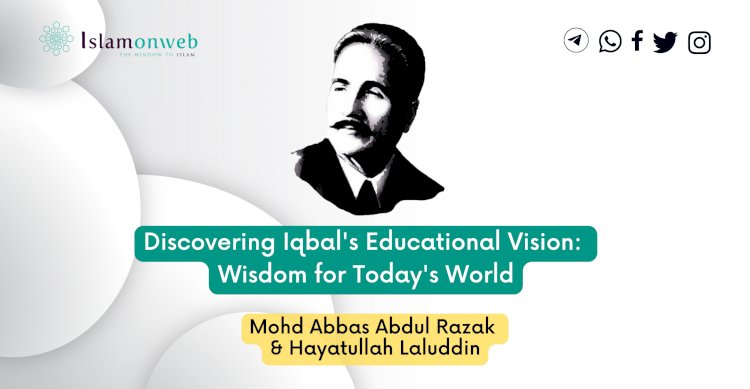


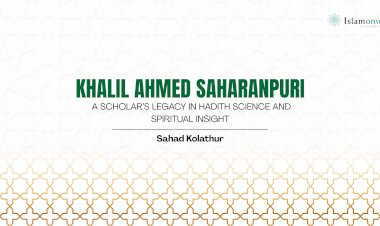
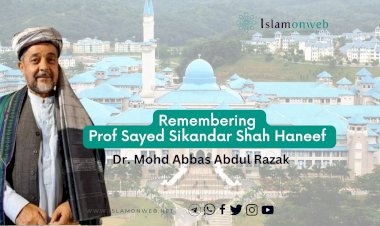
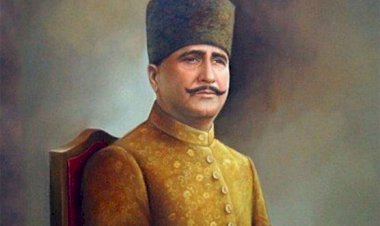
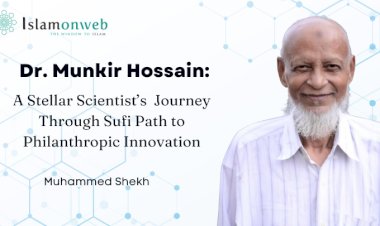
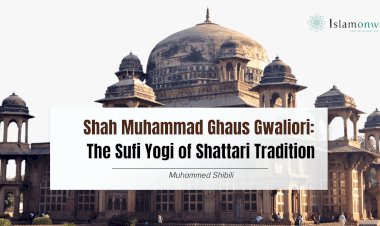















Leave A Comment